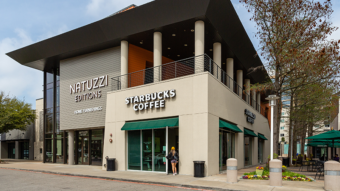An increase in condominium deconversions in the Chicago market has raised important questions for many condominium owners and the association board members. Do the benefits of selling to an investor, who then converts the units to rentals, outweigh any obstacles? Are the owners getting a fair deal—and the best market value for their units?
While many deconversions provide significant benefits to the unit owners, the newness of the approach and the ambiguity in the law have left some condominium boards and investors searching for definition and direction. By examining each situation and carefully weighing the pros and cons, condominium associations can help guide unit owners toward a satisfactory outcome.
To learn more about the recent deconversion trend, register for the Deconstructing Deconversion Conference, which will be held on October 18th at the Montgomery Club in Chicago.
According to Avison Young research, there have been more than 20 large deconversions—also known as Section 15 deconversions—announced in Chicago over the past 24 months. These generally include buildings built from the 1960s through the 1980s in popular city neighborhoods such as Old Town, Lincoln Park and the Gold Coast.
The multifamily rental market has soared in Chicago and nationally since the Great Recession, as home ownership rates declined. In addition, higher construction costs, a limited availability of attractive sites and other factors have limited new supply, particularly in prime neighborhoods. This environment has helped to fuel the deconversion market.
While many deconversions can produce a 25 to 40 percent valuation premium per unit over an individual unit sale, there are some instances when a deconversion may not make sense. Board members should work with the appropriate professionals to carefully review the purchase offer and terms proposed. How broadly was the opportunity marketed to investors? How experienced is the investor in completing deconversions? How are the proceeds from the sale going to be distributed to individual condominium owners?
Board members should also look for a process that is open and transparent. There are legal requirements regarding meeting notices and voting, for example. Are the owners receiving detailed information about the potential sale and how it would be structured? Residents who do not trust in the process are much less likely to vote in favor of the sale.
From an investor’s standpoint, a building that is outside of the city’s prime rental neighborhoods might provide long-term challenges, due to its limited attractiveness to future renters. Also, newer buildings with high-end amenities or older ones with major structural defects might not be economically feasible.
There also are misperceptions to consider when debating the merits of a deconversion. A common one is that the owners will have to move out. It’s natural for owners to have a range of emotions about selling to an investor. Many are initially reluctant because they think they will need to relocate, forced out by the new buyer.
Oftentimes the individuals can rent back their unit from the investor after the sale. This is a win for everyone, as the condo seller gains a pricing premium, avoids any special assessments and can remain in the unit.
Another common misconception is that the unit owners have to sell quickly or take the first offer. However, there are many investors out there and each potential deal should be examined closely and over a reasonable time period.
In today’s market, many homeowner associations are working with real estate professionals who understand the investment process and can help expose the opportunity to a wider pool of buyers. This can generate a healthy level of competition that improves prices and terms. It also creates an environment where market value is thoroughly examined.
The condo deconversion process is a unique process that can provide significant advantages for owners of condominium units. By completing a deconversion sale and allowing an investor to take on deferred maintenance and building modernization, the owners typically receive a premium over what the unit might sell for in the individual unit market. The process can be complicated and filled with uncertainty, however, making it imperative that all parties examine the whole picture as they move through the process.
James Hanson is a Principal in Avison Young’s Chicago office. He has 28 years of capital markets experience, including over $5 billion of closed investment sale, financing, sale-leaseback, development capitalization and strategic advisory assignments.



